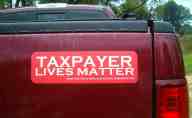 In today’s Crain’s Chicago Business, Senator Andy Manar wrote an article about Senate Bill 1, a bill creating a new formula for funding education based upon what is called the “evidence-based model”. Simply stated EBM is a 27-step formula that measures a school district’s “adequacy” toward providing sufficient funding.
In today’s Crain’s Chicago Business, Senator Andy Manar wrote an article about Senate Bill 1, a bill creating a new formula for funding education based upon what is called the “evidence-based model”. Simply stated EBM is a 27-step formula that measures a school district’s “adequacy” toward providing sufficient funding.
The article contains some inaccuracies which cannot go unaddressed and attempts to put a soft light upon what is the hard truth about this bill: that it’s a multimillion-dollar bailout of the Chicago Public School system.
Senator Manar starts out by stating:
“Illinois has the most regressive education funding system in the nation because of its reliance on property taxes and the state’s inability to meet its annual funding commitment. The result: Wealthy districts invest upward of $30,000 per student; poor districts as little as $6,000 per student.”
On this point I agree with him, but for a different reason. Our funding formula used to be quite progressive, but in 2004, the definition of “poverty” was changed to sweep more people up into its definition, resulting in an increase in the state’s expenditure for Poverty Grants from 10% of the General State Aid (GSA) formula in FY 2000 to more than a third in FY 2012, a 431% increase. I’m not saying that districts with higher concentrations of poverty don’t have unique problems that need additional resources, what I am saying is that you don’t have the right to take a basically progressive formula, change it and then cry foul over it being regressive.
In addition, the PTELL subsidy has grown from just $ 46 million in 2000 to $ 780 million in 2009, an increase of 1,267%. PTELL adjustments have particularly benefited Chicago Public Schools, which enrolls 18% of students, but receives 49% of PTELL dollars. As a result of these programs, Chicago has seen its education property tax rate drop from $3.60 per $100 of equalized assessed valuation (EAV) in 2001 to $2.37 in 2009. The $2.37 tax rate for Chicago compares with rates of $3 to $6 per $100 of EAV in school districts elsewhere in Illinois.
Neither the poverty grant nor the PTELL subsidy is “new money”. This is money that has been taken from what was a relatively progressive general state aid formula, making it much more regressive. As more state money goes into the CPS, local districts are left with nothing but property taxes to pay the bill.
The article then goes on to say that the formula:
“(A)lso eliminates the Chicago block grant, which gives CPS a prioritized, guaranteed level of funding from certain grant programs regardless of need. No more special deals.
No it doesn’t. The bill adds the $250 million of the Chicago block grant into the Base Funding Minimum (BFM) for CPS going forward. Under current law, this is money given to CPS that is over and above the actual claims of the District. None of the other 851 school districts get more than their actual claims. This provision in any form is a $250 million subsidy going directly to CPS at the expense of all other school districts in Illinois into perpetuity, and it is wrong. Continue reading






